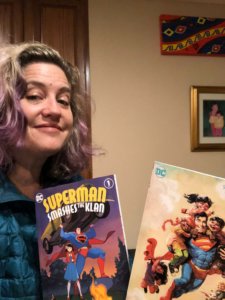Family Friendly
OKJA, Your Next Family Movie Night? My No-Spoiler Review
OKJA, directed by Bong Joon-ho, written by Joon-ho and Jon Ronson (from a story by Joon-ho) is yet another example of Korean film genius. This film is set in a speculative future (despite the film’s timestamp of 2007)…the scifi aspects of the story have to do with genetics. First, the short review.
6 Reasons OKJA Will Delight
- Streamable for free on Netflix, family friendly (I would rate it PG-13 for violence)
- Although there are Korean characters who only speak Korean (therefore, yes, you’ll have to read subtitles), much of this film is either visual narrative or the characters speak English
- Action-packed
- Funny and Heart-warming (the creature created for this film is cute and compelling)
- Thoughtful perspective on the food industrial complex
- With the child protagonist on a grand chase/adventure and with compassion at its core, this story feels like Studio Ghibli in all the best ways

Longer Review
Lately, when I look for something interesting and fun to watch, I gravitate toward Korean filmmakers. Why? They are some of the best storytellers around and Netflix is committed to working with them/putting their work out to the broadest audience. Moreover, Korean filmmakers don’t seem fixated on US/European political issues, which bore me these days. OKJA does touch on the industrial food complex…a global reality that is political. In particular, OKJA explores how meat is produced and processed for broad human consumption. But don’t let that stop you from watching this interesting and entertaining film. I think the questions that arise from the film are worth thinking about for every person on Earth, whether a vegetarian, vegan, or an omnivore. Kids watching this will also feel the implications of our “appetites”. It’s not a bad thing to help our youth understand that meat actually comes from creatures who live on this Earth with and among us. That’s a worthy conversation to have with our future leaders who will likely make choices for all of us about how we are to care for planet and creatures.

With an all-star cast, both Korean and US born actors inhabit this film. Stars like Tilda Swinton, Steven Yuen (The Walking Dead, Minari, Nope), Paul Dano (Little Miss Sunshine, The Batman, The Fabelmans), Yoon Je-moon (The Man Nextdoor), and Jake Gyllenhaal (Nightcrawler, Donny Darko) inhabit this universe. The protagonist, Korean actress Ahn Seo-hyun, is fantastic as the stoic caretaker of OKJA. She is the studio Ghibli-styled determined child who will not give up on her friend. This story is as much about loyalty and friendship as it is about food politics. I loved OKJA and I hope your family does too.

THAT HIDEOUS STRENGTH, A Review with Minor Spoilers
The third and final science fiction novel written by CS Lewis, THAT HIDEOUS STRENGTH, is touted by some as a fantasy novel. I hesitate to go deeper to explain why that might be, for fear of spoiling, but let’s just say that the story takes place on Earth, not in space, and one of the key characters who acts in a miraculous and decisive way to defeat the enemy, is a wonderfully fantastical character.
As I have talked with friends who have read all three, I get different answers about which is the “favorite” in the trilogy. There are individuals who love Out of the Silent Planet. I personally like it for its length…it is as short as a novella and a tight little narrative. Others love Perelandra. I appreciate Perelandra, but there are portions where reading was a chore. For me, THAT HIDEOUS STRENGTH is the true novel. It is my favorite of the three.
The Short Review: 5 Reasons I Recommend THAT HIDEOUS STRENGTH
- Compelling main character(s) both grappling with interior life, particularly with identity and faith
- A rich setting, a modern academic world and progressive (Lewis’ words) university leadership that feels creepy, yet familiar
- An amorphous and terrifying villain, well written and historically relevant
- In the midst of the horror, a comedic twist that feels like a Shakespeare switch-a-roo
- A companion novel to 1984. Many minds in this era of the 20th century understood the tyranny of government control. Lewis and Orwell were cut from that same cloth. Warnings that are relevant today and always.
For me, the young married couple, Mark and Jane, makes this story compelling in a way that is unique among the three novels in the trilogy. Jane is a crucial player and well developed. In the previous novels Lewis did not present the reader with a compelling female lead who was relatable. The Perelandra Queen is wonderful, but otherworldly. Jane, in this book, is utterly relatable. Her discomfiture with domestic life, her struggle with a husband who is caught up in his own professional world, felt deeply real. Mark is also real. Lewis highlights his hubris and insecurity, showing the reader how one might choose to align oneself with a horrific community. Mark’s longing for belonging, his hope for recognition are powerful human motivators and have the capacity to diminish the moral spine, especially if that spine is wobbly (as Mark’s is). Despite Mark’s poor choices, I got the feeling that Lewis, like the deity he knows and loves, has not given up on this lost soul. When Mark sinks low enough and faces the worst of himself, there is a promise of redemption.
THAT HIDEOUS STRENGTH is a story with complex layers. The deeper conversation about nations and their “haunting” is a topic I will not cover in this review, but in case you’re wanting to understand more, an article in The Imaginative Conservative called America’s “Logres”: The Mythology of a Nation helped me muse on what might be the American Haunting. That conversation is a crossover of the spiritual and the literary and takes the reader deeper into the mind of CS Lewis and those who were writing in like spirit, JRR Tolkien being one of those writers.
OUT OF THE SILENT PLANET, A No Spoiler Review
OUT OF THE SILENT PLANET, by CS Lewis came about as a result of a coin toss between JRR Tolkien and CS Lewis in the 1930s. The understanding between the two men; one side of the coin would mean writing a science fiction novel, the other side would mean writing a time travel novel. The coin was tossed, Lewis was assigned the scifi novel. Tolkien was assigned the time travel novel. Tolkien never wrote his. Lewis did, published in 1938, twelve years before Narnia. In fact, he wound up writing three books of science fiction. OUT OF THE SILENT PLANET, which I will review here, was the first. This story is sophisticated, but there is no reason a YA reader or a very learned middle grade reader cannot take on this story. For educators thinking about assigning this book to a young person, a solid discussion on the story would make the experience a profound one.
The Short Review: 4 Reasons to Read OUT OF THE SILENT PLANET
- Superb writing and because this is CS Lewis, when you’re finished reading, your brain will have expanded
- Scintillating ideas that awaken the conscience…Plunge yourself into the mindset of a WWI veteran and a brilliant observer of history and soak in Lewis’ crucial critique of pre-WWII Europe
- Absorb Lewis’ Christian concept of God/Creator…the beauty and the moral implications
- Gain a vision for the power of fiction (imaginative science fiction in particular) as a way to change hearts and minds.
A Few More Details:
When Lewis and his friend and colleague, JRR Tolkien, both veterans of WWI, decided to toss that coin, they had been musing together about the sad state of fiction. They believed that the godless universe theory unleashed to some degree by Darwinists and proponents of the Hegelian superstate/superman, was giving rise to real beliefs (like eugenics which both understood as dangerous and evil) inside academia and government. More troublesome, these theories were making their way into fiction and infecting the broader population through story.
Americans fought in WWII and helped to defeat Hitler, so my nation (I am a US citizen) often forgets how the eugenics movement in the US was accepted and backed by some of our highest state actors, like President Woodrow Wilson. We in the US forget, maybe conveniently so, that we too were traveling on a similar road as the Nazis. This is how pervasive these ideas were and back in that day, they were considered progressive. It turns out, anything can be labeled progressive. A cautionary and hopefully humbling reminder to us in the 21st century.
Marxist ideology was also suspect in Lewis’ eyes. Both Marxism and Fascism preached an exercising of power where the end justifies the means. That idea was an abomination to Lewis and Tolkien, the rejection of which made its ways into the Lord of Rings trilogy, as it did into all of Lewis’ writings. As Christians (Lewis, an Anglican, Tolkien, a Catholic), they challenged the idea that the state has permission to sacrifice an individual for some greater good, not without that individual willingly giving up her/his life, soldiers willing to fight to defeat the existential enemy of a free state being one example of this proper sacrifice, something both of these men witnessed first hand.
In regard to reading OUT OF THE SILENT PLANET, knowing a little 20th century history and philosophy definitely helps the reader enter into the world of Elwin Ransom, the hero of the story, but even without that knowledge, this is a fascinating and well written tale. Ransom, a philologist, is on a walking tour of rural England. He is kidnapped and taken to Malacandra (the planet Mars). What unfolds is a story about relationship and curiosity (Ransom’s journey) versus dominance exercised by violence (the journey of his kidnappers). The narrative provides a resolution that exemplifies the idea that there is a standard of justice that is literally universal.
This is my third time reading OUT OF THE SILENT PLANET (notice my beat-up copy in the image above…not sure it will survive another read-through) and after finishing the book this round, I found myself dreaming about grace and kindness and goodness while I slept…something that doesn’t often happen for me after reading science fiction before bed.
THE SILENT SEA, More Brilliance From the Korean Film Industry, A No-Spoiler Review of the Netflix Miniseries
First, the Short Review
6 Reasons I Recommend THE SILENT SEA
- Beautiful production overall, including visuals that underlie the creepy vibe
- Featured a number of my favorite Korean actors, a few you might recognize if Squid Game was on your watch list this past year
- Plenty tension and surprises/frights
- A number of science fiction and haunted house tropes embedded in the story and various characters (see more in longer review)
- The relationships and particularly, the relationship to authority feel authentically Korean. (also, see longer review)
- You know I love the miniseries genre, 1-hour installments of great storytelling that comes to a conclusion without an agonizing cliffhanger
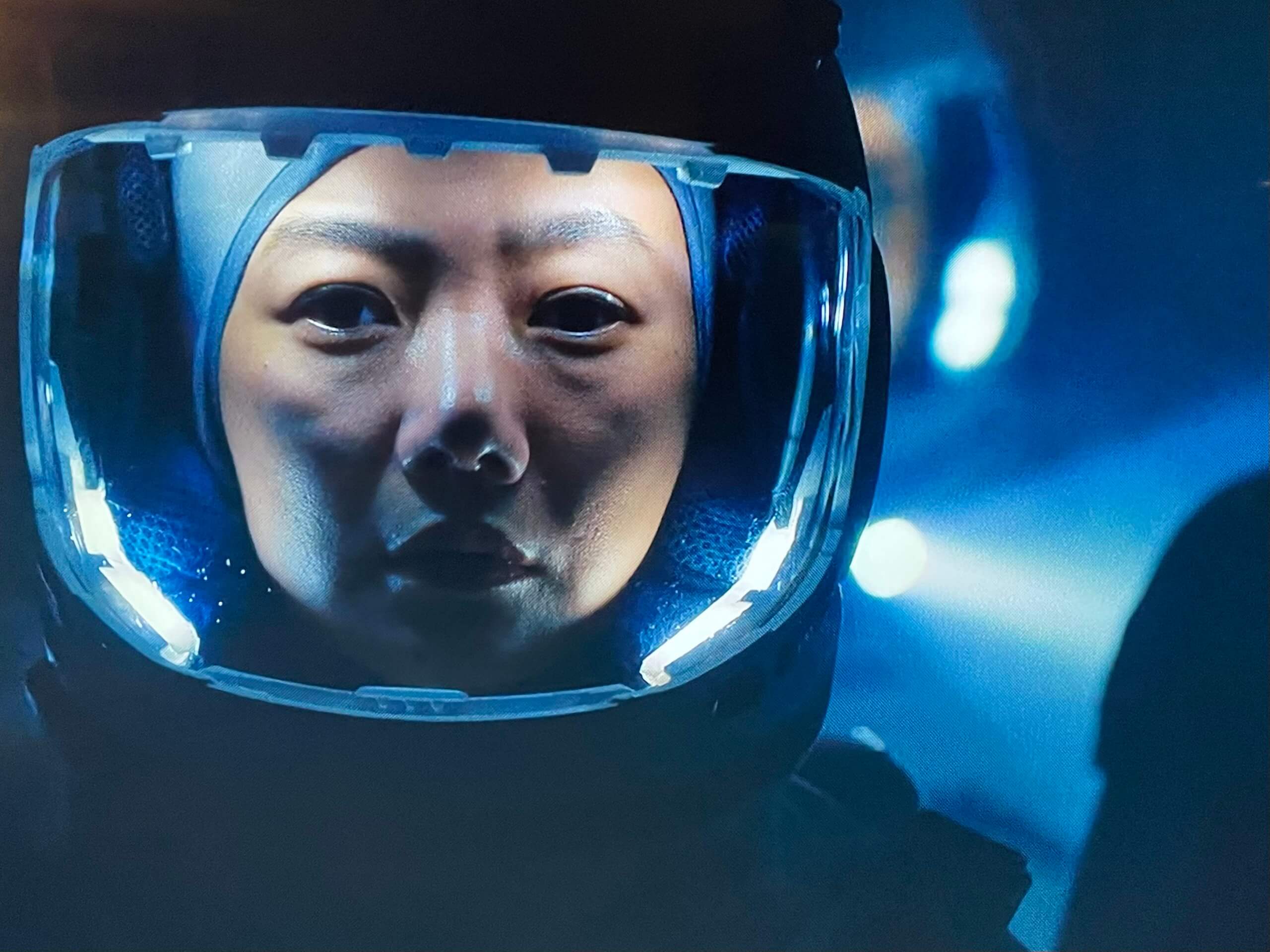
Longer Review
SILENT SEA is the story about a mission to the moon to find water. I rate this series PG-13. No sexual content in this production, but there are dead bodies, and some gore. Family-friendly if your teens are mature. It’s a fun, suspenseful ride.
The first episode quickly gives the viewer the high stakes for this mission. Drought has plagued the Earth. Water is the resource most valuable and due to its scarcity, the planet has become a wasteland. Water is rationed to such a degree, many have suffered physically, billions have died. The wealthy nations have gone into space to find a water source. Most abandoned the idea of finding water on the moon after searching, but the South Korean government kept snooping. There has been a top-secret program at a large moon station that was believed to have borne fruit, but suddenly…the experiment falters. Everyone dies all at once on the moon station. The earthbound directors, including Heo Sung-tae (pictured near end of review) initiate another mission to go to the station and investigate the truth, but secrets pulse underneath the surface of this mission and become one aspect of tension in the story. The authorities hold their cards close and the military and science leaders do not push back, though they suspect something fishy. This may or may not be an aspect of Korean-specific deference to authority, but the screenwriter exploits what I understand as deference in a way that serves the story. Also, this is where the nuanced acting plays such a powerful role in the unfolding of the narrative. The audience can see in the face of Bae Doona, the slight suggestion of twitch, a blink, a stern jaw…we see it, but barely and it helps us know that she understands that she is being deceived. Yet, in most of the outward behavior, she acts the true soldier. Doona is great at this nuanced acting, but she’s just one, among a number of these performers, who pull off such nuance. In my mind, THE SILENT SEA showcases superb writing and better acting than Squid Game. Click for a review of Squid Game

Once the mission lands on the moon, what unfolds reminded me of Ridley Scott’s Alien, in all the best ways. Yes, there will be corpses, tunnels, darkness, betrayals, a terrible and contagious sickness, but there will be one character who keeps her eyes on the prize. Dr. Song (Bae Doona) is intent on discovering the truth. In part, she seeks the truth because her sister is one of the corpses and the holder of many of the secrets. Doona as Dr. Song, pictured above, is a female lead in the Korean zombie series, Kingdom. To see my review of Kingdom, click here
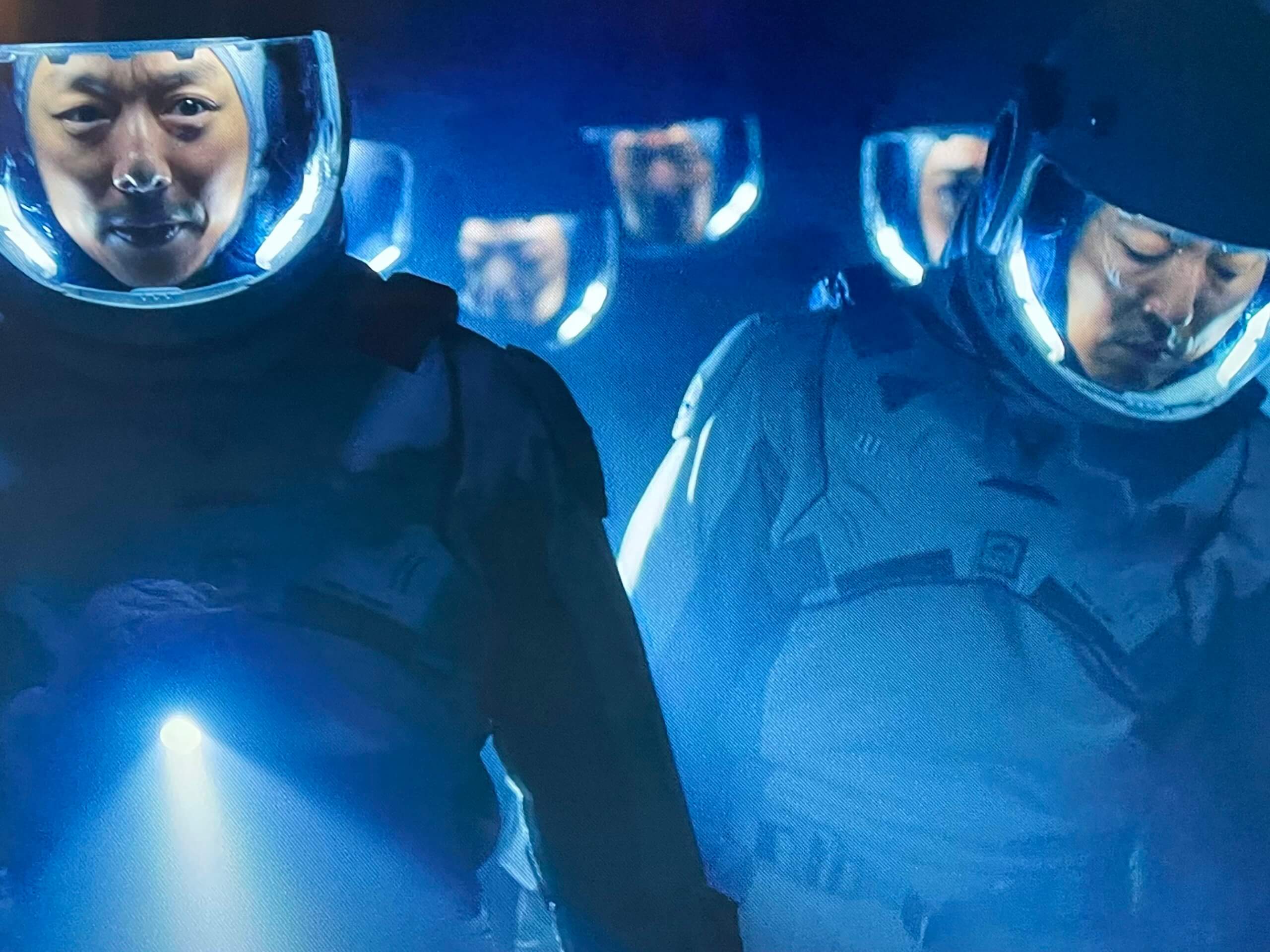
I beat this drum a lot but I do feel that Netflix streaming continues to find the best international productions and when it comes to science fiction, the Korean film/media community is putting out a lot of great product. Produced by Jung Woo-sung, directed by Choi Hang-Yong, who deftly handles the brilliant storytelling of screenwriter, Eun-Kyoi Park. Honestly, I think I could teach a five-hour course on writing with this series, moving scene by scene through the screenplay, in terms of a classic sci-fi thriller. Fun fact, this story (as did Scott’s Alien), closely follows the haunted house template. That means there are a few predictable tropes. The audience knows that the mission is doomed (at least the mission as it was originally conceived) as one by one, the team gets whittled down. Who will remain in the end…that is what the audience wonders. Regarding the various characters, the majority of them hold their own, each having his/her own arc, including the wise-cracking military scrub who just wants to go home…a longing the audience suspects will not be realized.
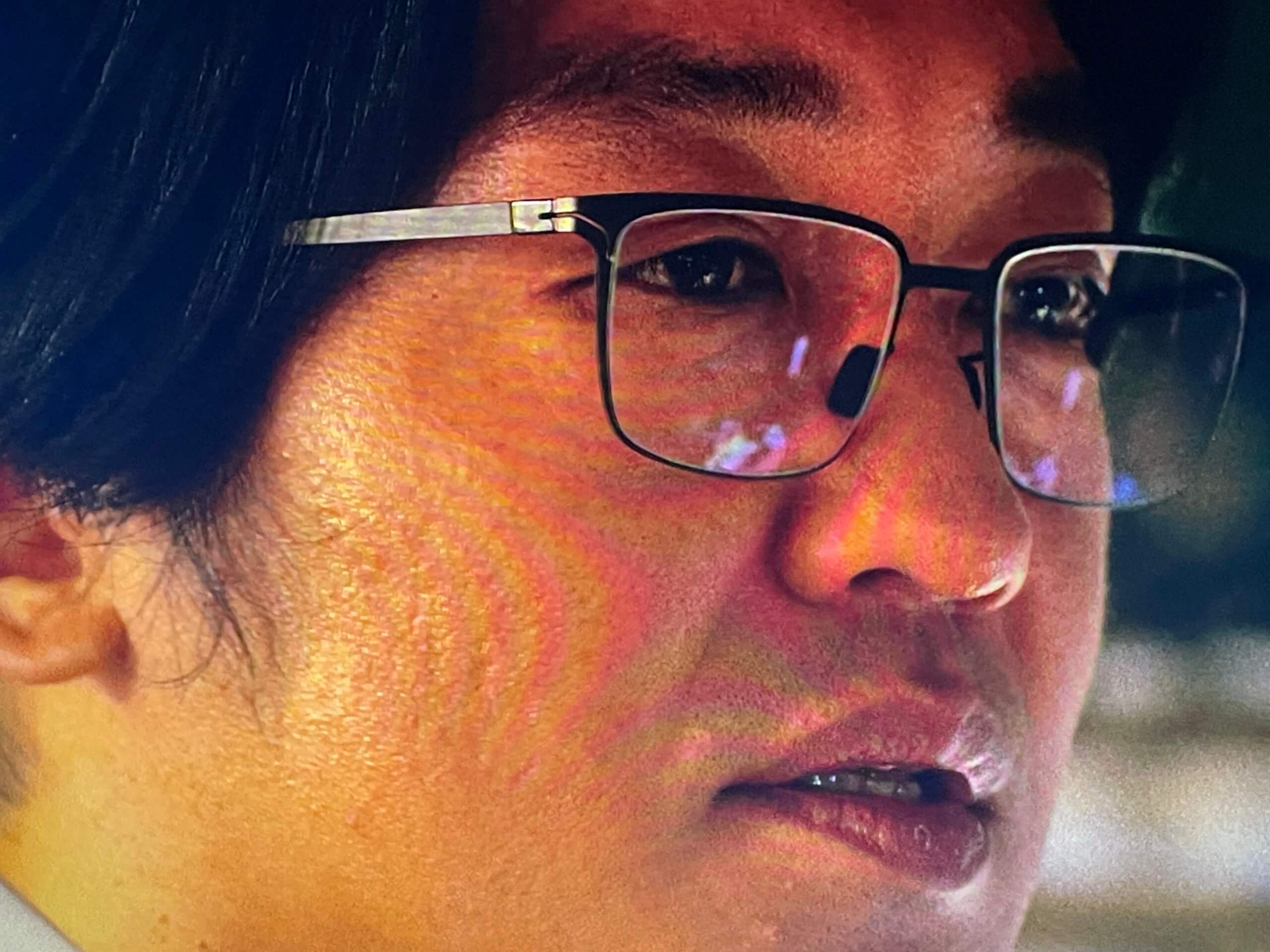
I highly recommend. THE SILENT SEA, and suspect that Netflix now has me pegged in its algorithm as a person who loves Korean-produced thrillers/sci-fi. I might need to give the Koreans their own category on my site. The product is so good, I can’t stop watching and when I watch, I always review.
STATION ELEVEN, A No-Spoiler Review
Last week, a few members of my family watched all ten episodes of STATION ELEVEN. This HBO Max miniseries is based on a novel by Canadian author, Emily St. John Mandel.
As a dystopian story, this series pleased all of us, different generations and genders. I rate it PG or PG13. The topic is challenging, but the people in STATION ELEVEN are not vile or overly violent…not much gore or explicit sexual content to worry parents…however, the subject matter is sophisticated, a web of relationships. It’s family-friendly with mature teens and if your kid is a drama-geek, they will LOVE this show.
First, My Short Review: 6 Reasons I recommend STATION ELEVEN
- The storyteller uses a familiar trope, a world destroyed by a deadly and contagious flu, but delivers an unexpected cast of characters, as well as a post apocalyptic vision of hope
- The angle on “life-after-the-fall-of-civilization” captures something both historic and literary in how human beings find meaning in the broken world they inhabit
- The characters shine and fail, change and surprise
- A fun cast as ethnically diverse as it comes, and without stereotyping
- The city of Chicago or the wilds around Lake Michigan are featured in just about every episode…and that felt refreshing. Granted, I now live in the Upper Midwest, but new settings other than NY and LA are a welcome television treat
- STATION ELEVEN is self contained as a miniseries. Watch all 10 episodes and you have a complete experience…I like that.
The Longer Review
STATION ELEVEN, the miniseries, is based on a novel I have not read. One scifi-reader friend told me he found that novel difficult to “get into” as a book. He felt impatient with it, complaining how it took too long to get to the dystopian world scenario. He was bored by all of the setup and character development that took place before the prime action. That feedback makes me curious to read the novel and then analyze how Peter Sommerville’s screenplay adaptation made adjustments because I did not feel this while watching STATION ELEVEN. The first episode features the unraveling of the world and the tensions inherent in societal breakdown. It focuses on two main characters: Kirsten and Jeeven, a young actress and the man who winds up becoming her caretaker. The subsequent episodes put forward backstory that help build the world and the complex web of relationships. But…I cannot say that the initial story in episode 1 bored me in any way.
Following a traumatic event at a Chicago theater performance of King Lear, Jeeven (an audience member at the theater) is warned by his sister, a doctor on the front lines of the flu pandemic, to get to a market, buy food and make his way to their brother’s high rise apartment. Kirsten, who is a young actress in the play, tags along with him. Jeeven tries to take her home but is unable to locate her parents, so he takes her with him to a market and buys six grocery carts full of food. Together, they push those carts to Frank’s apartment complex, load them on the utility elevator and end up safe with Frank (for a while) as the rest of society crumbles around them. Technology fails, little by little, including their electricity. There is little contact with the outside world. Kirsten entertains herself by disappearing into the world of a graphic novel called Station Eleven. She begins to write a play based on the novel…a book written by Miranda Carroll (Danielle Deadwyler) the ex-wife of Kirsten’s acting mentor, Arthur Leander (played by Gael García Bernal). Leander is a key character in the threads of this story, despite the fact that he is one who collapses and dies on stage while playing Lear in the first minutes of the series.
Jeeven, Frank and Kirsten do not fall to the flu. They stay safe and relatively well-fed in the apartment despite freezing temperatures. However, their haven doesn’t last forever and eventually, the author exploits this trope; the survivors must leave their haven and brave the outside world.
In this next section of the story, Kirsten finds her way to a shakespearean acting troupe. They become her new family. The drama troupe travels around Lake Michigan in the warmer months, performing among other plays, Hamlet. This is one of the surprising twists in the post-pandemic dystopia, to put forward the idea that the arts will continue and be celebrated by many despite how raw life has become for survivors. You will have to watch to find out what happens to Jeeven and Frank. The two brothers are wonderful characters…memorable and complicated.
There is another storyline that enters the series at this point, still somewhat connected relationally and geographically. It’s a surprise, but not an unwelcome one and adds to much of the backstory. Still, the audience does not know how this new storyline will connect to Kirsten’s. It does and it did not disappoint me.
What is woven through STATION ELEVEN is how the connective tissue of our friendships and relationships emerge even in a time of trauma and loss. The storyteller takes us to a place that might seem contrived, yet captures a potential truth, reminding the audience that connections matter and that the truths underlying relationships, like those put on the stage by William Shakespeare, are universal and relevant (especially relevant) to the human experience post pandemic.
SPACE SWEEPERS, A No Spoiler Review

5 Reason to Watch Space Sweepers, The Short Review
- characters, they’re funny, quirky and smart…They reminded me of many beloved STAR WARS characters
- Special effects, on par with cinematic space opera’s like Star Wars
- Family friendly, nothing offensive for parents trying to figure out what to show their kids
- Excellent space battles
- An ultimate choice for the main character(s) that packs an emotional punch
 The Longer Review
The Longer Review
This film assumes a space opera vibe and so reminded me of Star Wars, yet felt original. The pacing of this screenplay gave exactly the right amount of info while embedding a few nuggets that made me go back a rewatch portions. That was rewarding and I loved the heartbeat of the story’s core…the transformation of a rogue…think of Han Solo and his journey.
Not that this story only bleeds a happy ending. There is a tragic trade that takes place, a brutal choice for the main character. However, the overall adventure ranked above my expectations. When I’m streaming something online like this, I’m not expecting brilliance, but when it’s Korean made, I am coming to expect top-notch production. The Korean film industry is doing something right by focusing on great storytelling and upping the game at every turn when it comes to investing in the visual feast. SPACE SWEEPERS is no exception.

I will continue to seek out, watch and review Korean-produced scifi/horror/speculative fiction because in the last 2 years or more, the flow of great content is undeniable. For more Korean-productions that I’ve reviewed, see:
KINGDOM, A Review of a Korean-Made Masterpiece
SQUID GAME, A Review without Spoilers
TRAIN TO BUSAN, A No Spoiler Review
DUNE Part 1, The film. A No-Spoiler Review

In a similar way that Peter Jackson pleased both the non-reading audience and the hyper fan of the LOTR books, it looks like Villeneuve will do the same for the his audience and fans of the novel, DUNE.
DUNE, the film, is the first of two. It’s only about half of the novel (yet another reason to entice your teen to read the novel), and there could be more films if Villeneuve decides to continue with the novel’s sequels. We’ll see how that goes. The later books are brilliant but probably more challenging for the average audience member to consume. Herbert’s world is a complex and mostly unhappy place on almost all counts.
First, The Short Review of DUNE
5 Reasons to See this Film, Especially if you are a Scifi Fan…
- Mostly pitch perfect and accurate (close to the novel) storytelling
- Herbert’s DUNE is a foundational work in the scifi genre and has a huge international following. Without DUNE, Star Wars might never have been made.
- A vision within the story that transcends culture and era
- Great casting
- An epic visual feast
Now, for the Longer Review…
If you want to go deep, super deep on DUNE, there are papers written, blog posts and articles that speak to why the story DUNE is one that has reverberated in many cultures, especially subjugated cultures, since it was released in 1965. This article is a good one, in case you want more breadth about the history. Click on the link for the Guardian’s penetrating reflection. DUNE article, Guardian.

True, the viewer is only getting a third of the character depth in the film version and for that reason, I encourage all to read (or re-read) the novel. It ages well. But, even if you don’t read the novel, Paul, Leto, Jessica, Duncan, Kynes and the Fremen come across very close to the novelist’s vision. I had two observations of change that caught my attention: Villeneuve did not portray the Atreides’ mostly male in-house staff accurately in terms of their suspicion of Jessica as the betrayer. Their suspicion of the one woman in the mix comes through in the novel, not in the film. Also, the gay Baron Harkonnen is a known child predator in the novel. I can guess there are many reasons Villeneuve decided to forgo this portrayal of the only gay character in the story world. Let him be obese and disgusting in the visuals, but diminish his child predator persona. That seems like a wise decision on many fronts.
The portrayals I loved:
Arakkis, the worms, the Fremen, the sitch, the general feeling of the Bene Gesserit, the Harkonnens, the Sardaukar, the ornithopters, Arrakeen, the costumes (including the stillsuit)…these are all perfect, as are the actors’ portrayals of their characters.
Overall, DUNE was worth the time and money. I highly recommend this film.
THE HOBBIT, Chapter 1…A Study on Craft

For educators: This post and others like it are appropriate for a student who wants to improve in storytelling and/or writing stories. However, most of my writing posts contain spoilers. I recommend the student read the book first.
This is my second installment on first chapters. A few days ago, I analyzed chapter 1 of DUNE. To read that post, click here. Today, I analyze chapter 1 of THE HOBBIT.
This first chapter
–introduces the reader to the world and the main characters
–evokes reader empathy for Bilbo by showing Bilbo’s inner conflict
–presents the choice that will change Bilbo’s life forever
–introduces the reader to the fantastical possibilities that lie ahead, but also the dangers
In a hole in the ground there lived a hobbit. Not a nasty, dirty wet hole, filled with the ends of worms and an oozy smell, nor yet a dry, bare, sandy hole with nothing in it to sit down on or to eat: it was a hobbit-hole, and that means comfort.
Thus begins THE HOBBIT, by J.R.R. Tolkien, but really this sentence begins the longer saga that so many have come to know and love, THE LORD OF THE RINGS. Notice what it accomplishes.
- Sentence #1 introduces a new creature, the hobbit. This creature will inhabit the long saga. Bilbo first will be the unlikely hero (later his nephew, Frodo takes over the hero’s mantle). The audience will come to admire, adore and identify with Bilbo and Frodo.
- This sentence begins to describe the culture of hobbits. They are earthy, living in holes, but absolutely committed to cleanliness and comfort. These creatures are civilized…they just happen to like holes as their place of abode.
- In this first sentence, Tolkien begins to evoke our empathy for Bilbo, who will soon trade in his life of comfort for a wild and magical adventure.
Paragraph #2 of THE HOBBIT describes Bilbo’s home in detail, which will be the place where all the action takes place in the remainder of the chapter, including the entertaining of a wizard and a large group of dwarves, but even more than that, this home represents the comfortable life of a gentleman. Later in the story, Bilbo often longs for home (as does Frodo in the LOtR saga) as a place of rest, comfort and peace. It is a place to return to.
Paragraph #3 and #4 describe Bilbo’s ancestry, posing the curious conflict he bears within himself. There is a debate between the Baggins and the Took within Bilbo. The Took side of his family (Bilbo’s mother’s side) is prone to adventure and risk-taking. The Baggins side of the family (Bilbo’s father’s side) is conservative and would reject adventure and any controversy at all. The reader doesn’t have to wonder for very long which side will win out. Without that Tookish spirit, Bilbo might never have walked away from his comfortable hobbit hole.
Both impulses inhabit Bilbo and most readers can relate. It might be said that opposing impulses, such as what Bilbo experiences, are a part of every person. Thus, Tolkien evokes our empathy for Bilbo in chapter 1. Much as Bilbo leaves the comfort of his hobbit hole to journey with the dwarves, the reader leaves his/her comfort to embark with them in the story world.
Now for the rest of chapter one: Bilbo, because he values hospitality, entertains Gandalf (a wizard who believes Bilbo will be a key member of the adventure) and a group of dwarves who demand food, drink, then compel him to travel with them to a place where a dragon guards a great treasure. The adventure, as it is presented, is magnificent, romantic and promises great wealth. Bilbo is taken in, though it is touch and go for a while whether or not he can bring himself to leave his Hobbit hole. Despite his willingness to leave his home, it could be said the hobbit is in a way bewitched by the romantic notion of a grand adventure.
As they sang the hobbit felt the love of beautiful things made by hands and by cunning and by magic moving through him, a fierce and jealous love, the desire of the hearts of dwarves. Then something Tookish woke up inside him, and he wished to go and see the great mountains, and hear the pine-trees and the waterfalls, and explore the caves, and wear a sword instead of a walking-stick.
Yet, Thorin, the lead dwarf, does not mince words about the dangers they might face.
We shall soon before the break of day start on our long journey, a journey from which some of us, or perhaps all of us (except our friend and counsellor, the ingenious wizard Gandalf) may never return. It is a solemn moment.
What is Bilbo’s reaction to this sobering news?
Poor Bilbo couldn’t bear it any longer. At may never return he began to feel a shriek coming up inside, and very soon it burst out like the whistle of an engine coming out of a tunnel. All the dwarves sprang up, knocking over the table.
The stage has been set. The semi-cowardly and ill-prepared Bilbo Baggins will reluctantly leave his comfortable hobbit hole and venture with these new friends, the dwarves and Gandalf. When he finally returns, he will be completely changed and so will Middle Earth.
For over the misty mountains cold
To dungeons deep and caverns old
We must away ere break of day
To find our long-forgotten gold.
Bilbo went to sleep with that in his ears, and it gave him very uncomfortable dreams. It was long after the break of day when he woke up.
This stanza, when one reflects on THE HOBBIT and THE LORD of the RINGS speaks of long-forgotten gold. The dwarves believe this to be part of their hoard, that which is guarded by the dragon, Smaug. The reader understands a deeper meaning. Long-forgotten gold is the one ring to rule them all, found by Bilbo…later passed on to Frodo, becoming the impetus for the Lord of the Rings Saga.
The reader doesn’t understand at this point the profundity of the dwarves’ song, but it is there, imbedded in that first chapter of the very first book.
AD ASTRA, A Review With Minor Spoilers

- Meaningful story that unfolds with a tense, creepy vibe
- More family friendly than a lot of current scifi
- If you happen to be a Brad Pitt fan, he’s pretty much in every scene of this film with a lot of closeups. Has to be on your bucket list.
- The science fiction fan will enjoy a number of zero gravity fist fights, a vehicle chase/ambush on the moon, raging space baboons, and a more gritty portrayal of space travel and space tech for the science geeks.
- Nuanced performance by Pitt. His character is non emotional with flat affect, but this film is about his growth toward engaging his emotions. I thought Pitt pulled it off.
Longer Review…
I recommend AD ASTRA for the whole family. It’s worthy of a watch party. AD ASTRA is rated PG-13, I’m guessing for its few gory scenes. I don’t think the gore will disturb most viewers. If you need warning, write to me via comments section and I can warn you when to walk out of the room.
There are no sexually explicit events in this film and very little offensive language. It’s a quiet film in portions, much of it narrated by Pitt in voice-over journal entries/reports…The vibe felt similar to Space Odyssey, monotone and spare. However, unlike Space Odyssey, AD ASTRA gives its audience a few exceptional action sequences.

Power surges are wreaking havoc on Earth. These surges seem to be coming from an old space station, the Lima Project, the station run by Roy’s father (Tommy Lee Jones). That station went as far as Neptune. In Roy’s youth, the station stopped communicating with SpaceComm and all its inhabitants were presumed dead. At least this has been the public’s assumption. Roy’s included.
Now, the military reveals they believe Roy’s father is still living on Lima. The want Roy to communicate with his father, but Roy can only do this from an underground Mars station. (For some reason it cannot take place on Earth). Thus begins his odyssey to Mars and beyond.
The audience knows Roy has more than a few daddy issues. He’s serious, non-emotional and disconnected from others. Roy describes himself as someone who compartmentalizes for the sake of survival. Roy does have a wife, Eve (Liv Tyler), but that relationship is failing. They have no children.
So, in saving the world, Roy McBride will journey to save himself and if possible, his father. The interior journey that parallels the exterior journey to salvation is not so subtle in the film, but it is still a fun ride.
SUPERMAN SMASHES THE KLAN, A No Spoiler Review
SUPERMAN SMASHES THE KLAN, written by Gene Luen Yang and drawn by Gurihiru was released exactly one week ago, Wednesday the 16th of October and understandably, it is moving off the shelves fast. I highly recommend this first installment in the three part series. I rate this series PG and would encourage parents to read it with children and discuss the many aspects of the story that are rooted in history.
Short Review: Five Reasons to Own and Read SUPERMAN SMASHES THE KLAN:
- Be a collector! Only 3 installments to buy. Keep this historic series forever while using only an inch of space on your bookshelf!
- The drawings and colors are beautiful and stylized to deepen the reading experience.
- Learn history. There are historic truths woven into the story. Yang also adds autobiography relaying the story of how he has experienced racism and historical facts about the Ku Klux Klan at the end of the comic.
- The characters are well-drawn (literally and figuratively), avoiding cliches that sometimes populate comic book fiction
- The story is full of action, suspense, but doesn’t paint an overly simplified view of good vs. evil. This is one Gene Luen Yang’s strengths…the empathy he feels for all his characters, even the very broken ones.
To buy this book, Part 1 of 3, you’ll need to visit your local comic book store or click here. Also, if it’s been a while since you entered a well-stocked comics store, you owe yourself the treat. Go now and browse the shelves!
Most science fiction fans love comics, but not all. I know a few who have avoided them in favor of novels, television and film, but the comic format has proven its heft in recent years with literary stories like American Born Chinese. Gene Luen Yang, the author of American Born Chinese, also wrote the much-acclaimed New Super-Man, in which an Asian American young man emerges as the Superman in the story. It is no surprise Yang was DC’s choice to bring SUPERMAN SMASHES THE KLAN to life. The story is an adaptation of a 1946 smaller story arc within a radio series called The Adventures of Superman. In it, an Asian-American family is threatened by the Ku Klux Klan and Superman is inspired to protect the children of this family from racist terror.
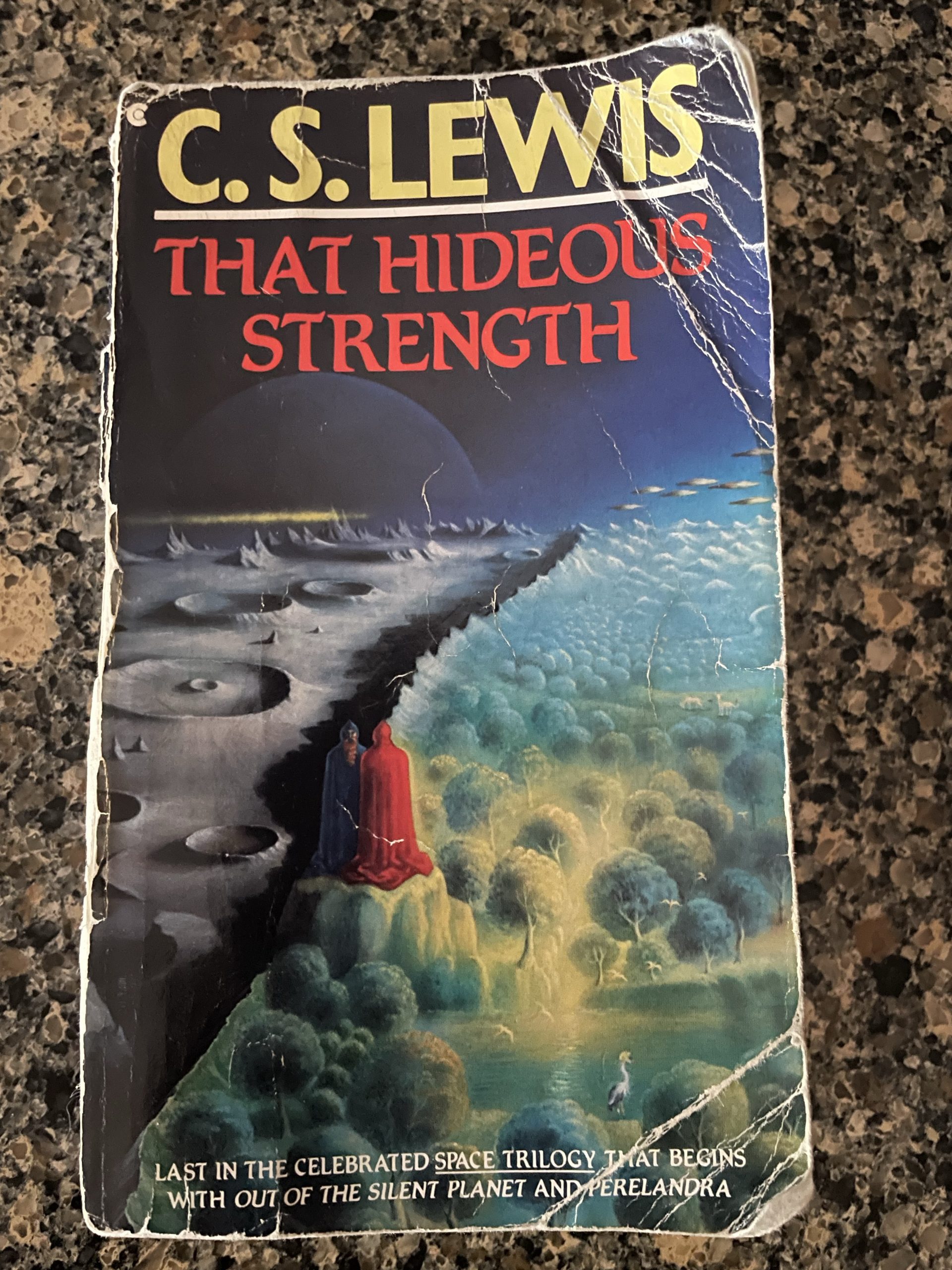

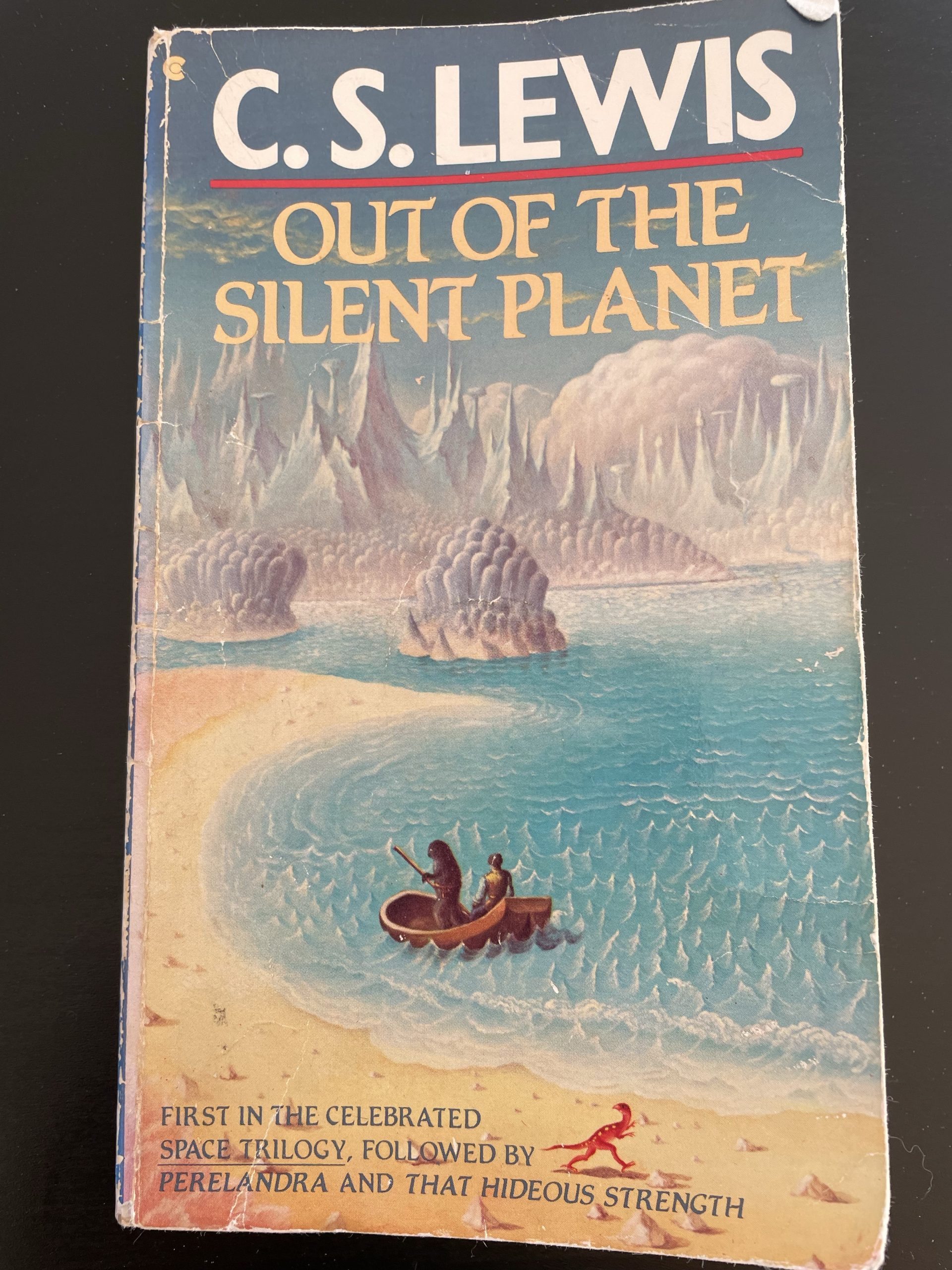



 The Longer Review
The Longer Review


